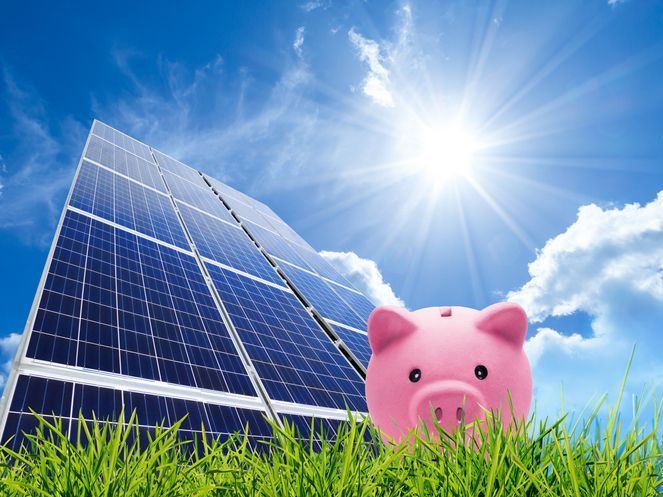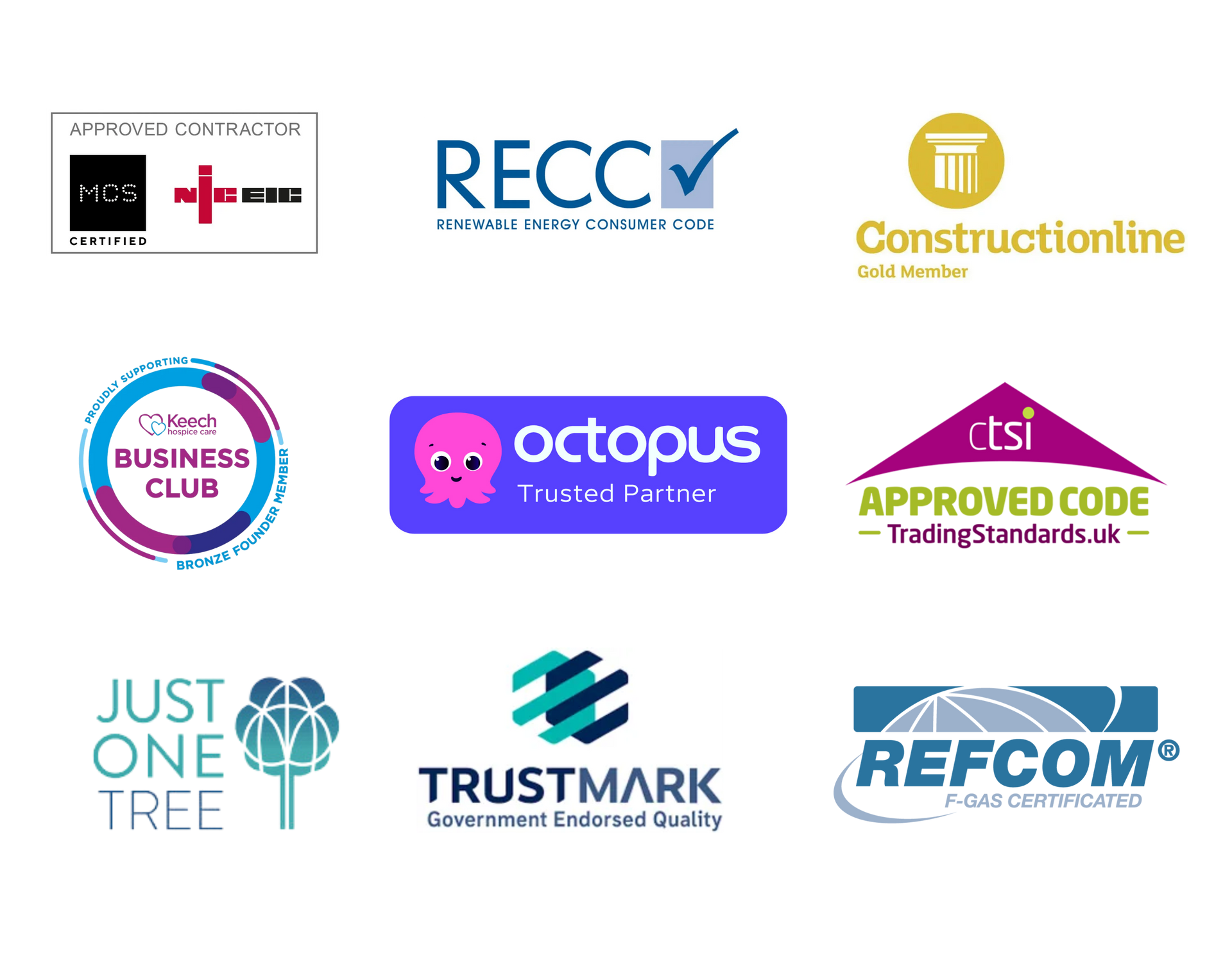- Blog
How much do Solar Panels save?
Let's take a look into Solar Panel savings!
With rising energy costs and a growing focus on sustainability, many homeowners and businesses are turning to solar power.
Reduce energy bills and contribute to the global shift towards renewable energy! One of the most common questions we get at Edtricity is, "How much do solar panels really save?"
We will take an in-depth look at how solar panels can save you money, how these savings add up over time, and why installing solar power in London can be a financially savvy decision. From energy savings to government incentives, we will break down the key factors that impact how much you can save with solar energy.

How Solar Panels Save Money
Solar panels generate electricity by harnessing energy from the sun, allowing homeowners to produce their own power instead of relying on the National Grid. The electricity produced can be used to power your home, and any surplus energy can be stored in batteries or sold back to the grid through the Smart Export Guarantee (SEG). This reduces your dependency on traditional energy providers and lowers your electricity bills.
But how much can you actually save? The amount of savings depends on several factors, including:
- The size of your solar panel system
- Your energy consumption
- The amount of sunlight your property receives
- The cost of electricity from your energy provider
- Whether or not you take advantage of government incentives.
Average Savings with Solar Panels in London
1. Energy Bill Reduction
On average, a typical 3kW to 4kW solar panel system can generate between 2,500 and 3,500 kWh (kilowatt-hours) of electricity per year. In a London home, this could account for approximately 50% to 70% of your annual electricity needs, depending on your energy consumption. Given that the average electricity price in the UK is around 30p per kWh, this could lead to annual savings of £450 to £900 on your electricity bill.
For larger properties or higher energy consumers, the savings could be even more substantial with a larger solar system, and especially if you use a battery storage system to store and utilise more of the electricity generated during the day.
2. Feed-In Tariffs and Smart Export Guarantee (SEG)
While the government’s Feed-In Tariff (FIT) scheme closed in 2019, homeowners in London can still benefit from the Smart Export Guarantee (SEG). Under this scheme, you can sell the excess electricity generated by your solar panels back to the National Grid. SEG rates vary by provider, but typically range from 1p to 5p per kWh. Although this is not as lucrative as the former FIT scheme, it still offers a way to monetise surplus energy.
For example, if your solar panels produce more electricity than you consume, and you export around 1,500 kWh of electricity to the grid annually, at a rate of 5p per kWh, you could earn around £75 per year. While this may seem modest, every bit of savings counts towards lowering the overall cost of your solar investment.
3. Savings with Solar Battery Storage
Adding a solar battery to your system can further increase your savings. A solar battery allows you to store excess electricity generated during the day and use it at night when your panels aren’t producing energy. This reduces the amount of electricity you need to buy from your energy provider, further cutting your bills.
Battery storage is particularly beneficial in London, where cloudy weather might reduce your solar output on certain days. With a battery, you can store the energy produced on sunnier days and use it when production is lower. This maximises the efficiency of your solar system and allows you to use more of the energy you generate.
Long-Term Financial Benefits of Solar Panels
The long-term savings of solar panels extend far beyond your immediate electricity bill reductions. Solar energy is a long-term investment that pays off over time, with most solar panels lasting 25 years or more. Here’s how solar panels can provide ongoing financial benefits over the years:
1. Payback Period
The payback period is the time it takes for your solar panel system to pay for itself through savings on electricity bills. For most London homeowners, the average payback period for a solar PV system is between 8 to 12 years. This timeframe depends on factors like the initial cost of the system, your energy consumption, and the size of the solar array.
Once you’ve recouped the initial cost of the installation, any further savings go directly into your pocket, meaning you’ll benefit from free electricity for the remaining lifespan of the system—typically 15 years or more after the payback period.
2. Increase in Property Value
Installing solar panels can also increase the value of your property. As energy-efficient homes become more desirable, properties with renewable energy systems like solar panels are viewed as attractive investments. Homebuyers are willing to pay a premium for homes that come with solar systems, given the potential for future savings on electricity bills. In a city like London, where property prices are already high, the added value of solar panels can be a significant financial boost when it comes time to sell your home.
3. Protection Against Rising Energy Prices
One of the key advantages of investing in solar power is protection against rising energy costs. Energy prices in the UK have been on the rise due to inflation, increased demand, and geopolitical tensions affecting fuel supplies. With a solar panel system, you can hedge against these future price hikes by generating your own electricity. Even if electricity prices continue to climb, your reliance on the National Grid will be reduced, helping you maintain lower energy costs over the long term.
Environmental Savings
While the focus of this article is on financial savings, it’s important to highlight the environmental benefits of solar energy. By investing in solar panels, you are contributing to the reduction of carbon emissions and supporting the UK’s transition towards net-zero emissions by 2050.
A typical solar panel system can offset around 1.5 to 2 tonnes of CO2 emissions annually. Over 25 years, that’s a reduction of up to 50 tonnes of carbon emissions—equivalent to planting over 2,000 trees. In London, where air quality and pollution are growing concerns, adopting renewable energy is a meaningful way to make a positive environmental impact while saving money at the same time.


How Much Does It Cost to Install Solar Panels?
While the exact savings depend on your system size and energy consumption, it’s also important to understand the upfront costs involved. In London, the average cost to install a solar PV system is between £4,000 and £8,000 for a typical 3kW to 4kW system. Larger systems will naturally cost more but will also generate more energy and provide greater long-term savings.
At Edtricity, we offer tailored solar panel installations for homes and businesses in the London area. We work with you to design a system that fits your energy needs and budget, ensuring you maximise your return on investment.
Conclusion: How Much Can You Save with Solar Panels?
The savings from solar panels can vary depending on several factors, but for most London homeowners, solar energy is a worthwhile investment. With energy bill reductions, the ability to sell surplus electricity through the Smart Export Guarantee, and the added benefits of battery storage, the financial benefits of solar panels are significant over the long term.
When you factor in rising energy costs, the potential increase in property value, and the environmental benefits of switching to renewable energy, the case for installing solar panels becomes even more compelling.
At Edtricity, we specialise in helping London residents transition to solar power with tailored solutions designed to maximise savings and efficiency. If you’re ready to explore how much you could save with solar panels, contact us today for a free consultation and start your journey towards a more sustainable, cost-effective future.

Our Accreditations








